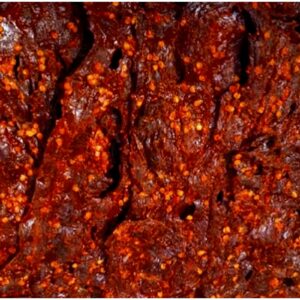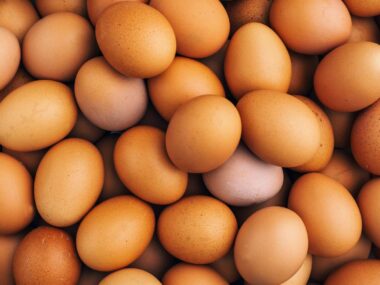In areas the place entry to contemporary meat is proscribed, kilishi emerges as an important supply of protein, enriching diets and sustaining communities.
This conventional African snack, famous for its savoury flavours and nutrient-rich composition, performs a major position in addressing dietary wants.
This essay goals to discover the significance of kilishi as a supply of protein, its dietary worth, and its effect on communities with restricted entry to meat.
The Significance of Protein
Protein is an important macronutrient required for the expansion, restoration, and upkeep of tissues within the physique. It performs a vital position in muscle improvement, immune operation, hormone regulation, and enzyme manufacturing.
Ample protein consumption is especially necessary for kids, pregnant women, athletes, and people recovering from sickness or damage. Nevertheless, in areas where meat is scarce or prohibitively costly, assembly each day protein necessities might be difficult, resulting in malnutrition and well-being problems.
Kilishi: A Protein-Wealthy Snack

Kilishi, a conventional African snack constructed from marinated and air-dried meat, gives a handy and accessible supply of protein for communities with restricted meat entry.
Usually ready utilizing lean cuts of beef, goat, or lamb, kilishi undergoes a meticulous technique of slicing, marinating, drying, and spicing to realize its distinctive taste and texture. The result is a protein-packed snack that gives important vitamins while satisfying starvation and cravings.
Dietary Composition of Kilishi
Kilishi boasts a formidable dietary profile, making it a useful addition to diets lacking in protein. A 100-gram serving of kilishi supplies roughly 30-40 grams of protein, together with important nutritional vitamins, minerals, and amino acids.
The lean meat utilized in kilishi is low in fats and LDL cholesterol, making it a heart-healthy protein supply. Moreover, kilishi is rich in iron, zinc, vitamin B12, and different micronutrients important for total well-being and well-being.
Effect on Communities
In areas where meat is scarce or prohibitively costly, kilishi serves as a lifeline, making certain that people have entry to ample protein to assist their dietary wants.
Households depend on kilishi to complement their diets, particularly throughout lean instances or when meat costs soar. Youngsters, specifically, profit from the protein-rich goodness of kilos, supporting their progress and improvement throughout important phases of childhood.
Cultural and Social Significance
Past its dietary worth, kilishi holds cultural and social significance in lots of African communities. It’s usually loved throughout festive events, celebrations, and social gatherings, symbolizing hospitality, generosity, and communal unity.
Kilishi-making methods are handed down by way of generations, preserving cultural heritage and culinary traditions. Furthermore, the manufacturing and sale of kilos present financial alternatives for native artisans and entrepreneurs, contributing to livelihoods and group improvement.
Addressing Meals Insecurity
In areas affected by meal insecurity, kilishi gives a sensible answer to handle dietary gaps and promote meal safety. Its lengthy shelf life and portability make it appropriate for storage, transportation, and distribution in distant or underserved areas.
Non-perishable and nutrient-dense, kilishi can function as emergency meals assist throughout instances of disaster, making certain that weak populations have entry to important vitamins to maintain their well being and well-being.
Selling Sustainable Diet
As considerations about sustainability and environmental effects develop, kilishi emerges as a sustainable protein supply in comparison with standard meat manufacturing.
Kilishi requires minimal assets and vitality for processing and preservation, making it an extra eco-friendly choice. By selling the consumption of kilishi, communities can scale back their ecological footprint while making certain meals the safest and dietary resilient.
Conclusion
Kilishi performs a pivotal position in offering important protein and vitamins to communities with restricted entry to meat. Its dietary worth, cultural significance, and financial contributions make it a cherished part of African culinary heritage.
As efforts to handle world meal insecurity and promote sustainable diet proceed, kilishi stands out as a shining instance of how conventional meals can nourish populations, assist livelihoods, and protect cultural id.
By recognizing the significance of kilishi and supporting its manufacturing and consumption, we can empower communities to thrive and flourish in the face of dietary challenges.










